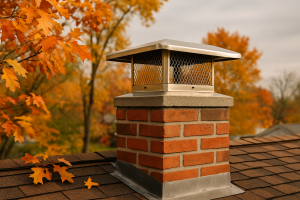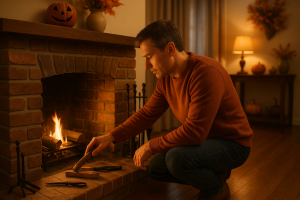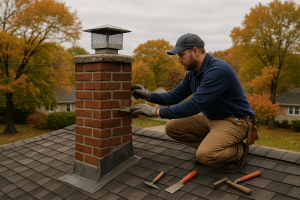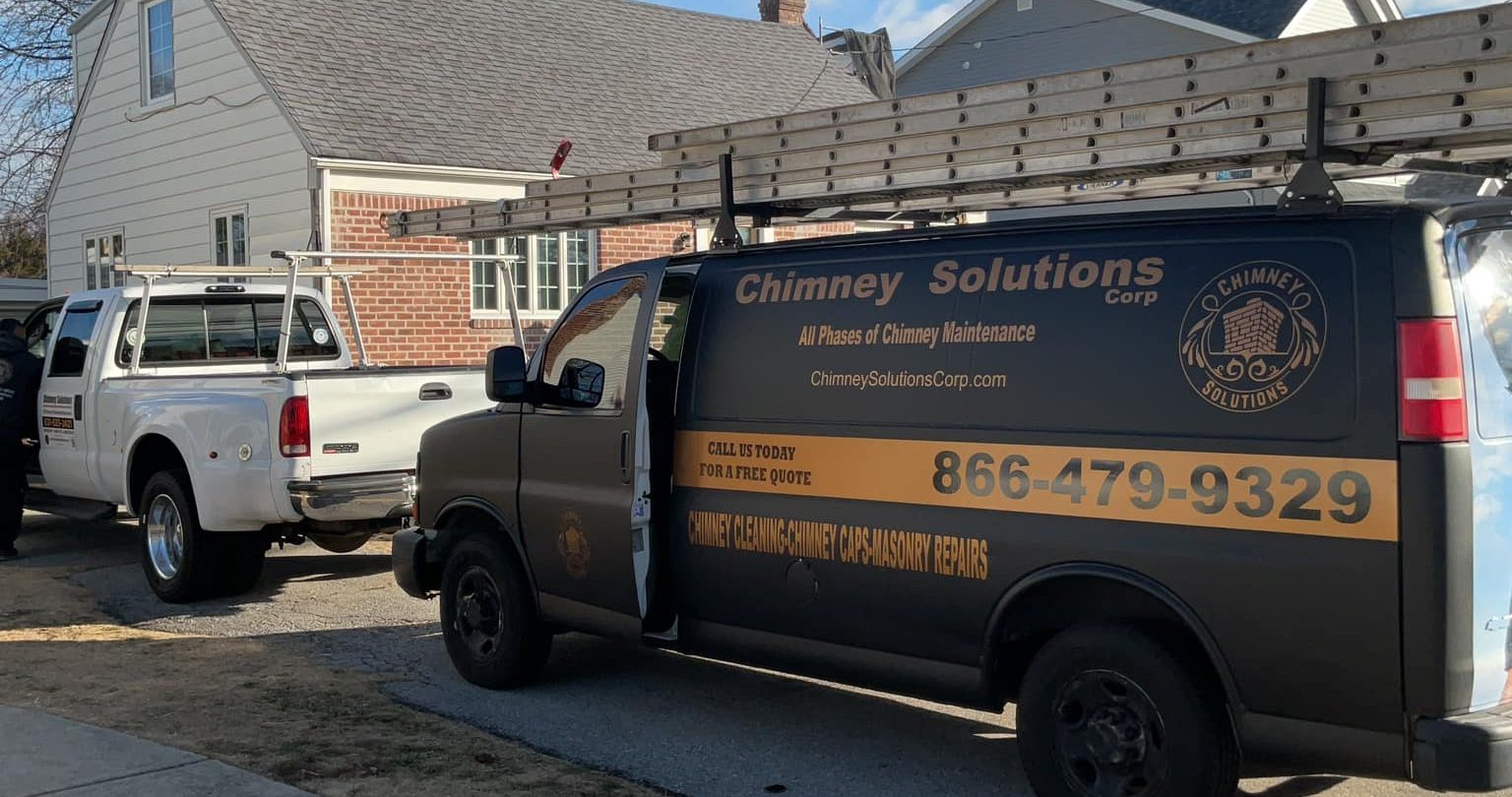How to Extend the Lifespan of Your Chimney with Preventive Maintenance
Waterproofing your chimney is a crucial aspect of home maintenance, especially if you reside in a coastal area. Homes near oceans or large bodies of water are continually exposed to challenging climates characterized by high humidity, saltwater, heavy rains, and frequent tropical storms. These factors significantly increase the risk of chimney leaks, costly damage, and structural deterioration over time. A properly-functioning chimney isn’t just about aesthetics—it’s critical for your family’s safety, preventing potential dangers such as chimney fires or the risk of carbon monoxide entering your home. Understanding the value of chimney waterproofing can save you from extensive and expensive repairs in the future, and this article explores exactly why.
Why Chimneys in Coastal Areas Need Extra Protection
High Humidity and Rainfall Challenges
The combination of high humidity and heavy rainfall common in coastal regions accelerates chimney deterioration. Continuous moisture exposure leads to masonry damage, mortar deterioration, and mold growth. Moisture damage weakens the chimney structure and promotes the buildup of creosote—a flammable substance posing serious fire hazards. Even a minor issue, like water infiltration through loose bricks or damaged mortar, can become costly water damage if not addressed promptly.
Effects of Saltwater Exposure
Saltwater exposure significantly impacts chimneys over time. Salt particles from sea spray penetrate masonry assemblies, causing long-term deterioration of bricks and masonry joints. Additionally, the deterioration of metal components, such as chimney caps, metal strips, and chimney flashing, occurs rapidly due to corrosion from salt-laden air. This results in leaky chimneys, causing dark stains on interior walls and ceilings, leading to extensive damage and costly repairs.
Freeze-Thaw Cycles and Harsh Winters
Coastal areas experience freeze-thaw cycles even in milder climates, causing water trapped inside masonry to expand and contract repeatedly. This creates masonry cracks, loose mortar, and flue liner damage. During harsh winters, compromised chimneys can lead to water leaks, structural instability, and costly heating inefficiencies. Protecting your chimney from winter damage by waterproofing it is an essential step to maintaining its structural integrity.
Common Chimney Issues Found in Coastal Homes
Rusting Caps and Deteriorated Flashing
Metal chimney caps rust quickly in coastal climates, leaving chimneys vulnerable to water intrusion and debris impact. The chimney cap replacement process is a relatively inexpensive yet essential preventive measure. Additionally, damaged chimney flashing results in hidden issues and current leaks that require immediate attention from professional chimney experts or a roofing professional.
Masonry and Mortar Joint Damage
Masonry chimneys, including stone and brick chimneys, often suffer significant damage in coastal climates. Moisture penetration leads to damaged mortar, visible cracks, and brick deterioration. Regular inspections by a professional chimney sweep can detect these problems early, reducing the need for expensive masonry repairs later.
Benefits of Professional Chimney Waterproofing
Investing in proper chimney waterproofing offers substantial long-term protection. Waterproofing creates a watertight seal, preventing moisture damage and providing a protective layer against harsh weather conditions. This preventive measure reduces future expensive repairs and ensures your chimney remains efficient and safe throughout the heating season.
Professional waterproofing also protects your fireplace accessories and stainless steel liners from corrosion, maintaining their proper functioning and extending their lifespan.
Selecting High-Quality Waterproofing Products
Advantages of Siloxane-Based Waterproofing
Siloxane-based waterproofing products provide an industrial water-repellent barrier that allows masonry chimneys to breathe, releasing moisture while blocking external water infiltration. These high-quality materials offer durable protection against mineral-heavy water and salt spray, significantly reducing potential damage to your chimney.
Stainless Steel Accessories
Using stainless steel chimney liners, caps, and dampers offers superior corrosion resistance, especially important in coastal climates. Unlike galvanized steel, stainless steel liners provide long-term protection, withstand salty air, and significantly reduce the deterioration of metal components.
Recommended Chimney Waterproofing Frequency
Regular chimney maintenance in coastal regions should include professional waterproofing every 5-7 years. However, chimneys frequently exposed to heavy rains or tropical storms may require more frequent protective measures. Regular inspections conducted by professional chimney technicians can identify early warning signs of deterioration and recommend appropriate proactive steps for optimal chimney care.
Importance of Professional Inspections and Regular Maintenance
Routine chimney inspections performed by professional chimney technicians are essential. These professionals use quick inspection techniques to uncover hidden issues like liner damage, compromised chimney flashing, and masonry deterioration. Their expert solutions prevent minor inconveniences from escalating into dangerous situations.
Regular chimney cleaning removes combustion byproducts and creosote buildup, reducing fire hazards. Scheduled maintenance visits often include expert gutter cleaning, gutter maintenance, and protective measures such as applying a layer of roofing cement or installing a professionally-installed system for optimal protection from rain.
The Chimney Waterproofing Installation Process
Waterproofing involves a systematic, professional approach ensuring complete protection:
First, professional chimney experts conduct a comprehensive inspection, noting common signs of chimney deterioration, such as loose mortar, rattling sounds, acrid smells, or feeling damp around fireplace areas.
Next, chimney repairs such as crown repair, proper flashing installation, or chimney rebuild services address structural issues. These essential repairs create the ideal foundation for waterproofing.
Then, waterproofing products are applied correctly, forming an effective barrier against moisture and potential chimney water leaks.
Lastly, installation of stainless steel chimney accessories and protective caps prevents water entry, debris impact, and metal deterioration, offering robust long-term protection.
|
Chimney Waterproofing Steps |
Importance & Benefits |
|---|---|
|
Inspection and Cleaning |
Detects early warning signs and removes hazards |
|
Structural Repairs |
Ensures masonry stability and proper chimney functioning |
|
Application of Waterproofing |
Forms watertight barrier, protecting against moisture damage |
|
Stainless Steel Installation |
Reduces future corrosion and extends chimney lifespan |
Choosing Certified Chimney Specialists
Selecting reputable chimney service providers like Select Chimney Services or Hudson Chimney ensures reliable services and adherence to local building codes. These experts provide comprehensive repair services, proper installation techniques, and tailored waterproofing solutions specifically designed for coastal conditions.
The Long-Term Impact and Value
Proper chimney waterproofing in coastal areas offers significant benefits, including:
- Reducing the risk of dangerous chimney fires or carbon monoxide poisoning.
- Minimizing long-term water damage and extensive structural repairs.
- Preserving valuable architectural features and aesthetic appeal.
- Protecting home value and ensuring efficient central heating performance.
Conclusion and Next Steps
Chimney waterproofing is a critical, proactive approach to maintaining safety, reducing costs, and ensuring your chimney withstands coastal conditions. Valuable lessons about chimney maintenance clearly demonstrate the importance of regular chimney inspections, professional waterproofing, and immediate action when facing potential issues.
To ensure your chimney remains protected from coastal weather, contact Chimney Solutions today. Our professional chimney technicians will guide you through each step, providing expert advice and reliable solutions.
Contact Chimney Solutions at 866-446-0427 and invest in the long-term protection of your chimney.



